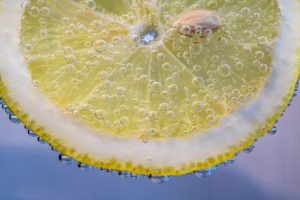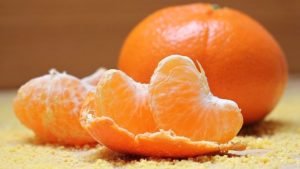Adopting a positive attitude towards life in spite of its numerous challenges is key to a healthy lifestyle. Have you ever wondered why some people remain healthy and fit for so long? Ever wondered why and how people stay for years without visiting a Doctor or the hospital? Well, being healthy is a deliberate choice that they’ve made. When you are aware and in charge of your thoughts, feelings and behaviour, you will be able to have and maintain a good physical, mental and emotional health.
Before we discuss any thing related to health, it is expedient that we know what health first means. According to the Advanced English dictionary, health is simply defined as a state of wellbeing that is free from illness or disease, health is also seen as the general condition of the BODY AND MIND. So when we do talk about health, we do not only mean taking care of your body physical but also emotional, mental and socially. So do you care to keep healthy yourself, then pay attention to the following simple tips.
EAT HEALTHY AND BALANCED FOODS.

For a healthy living, one must cultivate the habit of eating foods that are rich in nutrients to enhance a balanced diet.
BALANCE DIET: A balanced diet is a diet that contains the appropriate amount of all the necessary nutrients in its correct proportion or adequate amounts needed for the optimal growth and development of the body to promote health. A balanced diet is important in the human body because the organs, tissues and systems need adequate nutrition to work effectively. So to get the proper nutrients from your diets, a choice of the six classes of food that range from; Carbohydrates to protein, vitamins, fat and oil, minerals and water, are important factors. Foods like fresh fruits, vegetables (greens), whole grains, legumes, nuts and lean proteins fall into different category of food classes.
A class of Carbohydrates plays an important role in producing energy in the body. Carbohydrates supply energy to all the cells in the body. Many cells of the body prefer glucose as a source of energy versus other compounds like fatty acid. The brain is also very sensitive to low blood-glucose levels because it only uses glucose to produce energy and function (unless under extreme starvation conditions). Carbohydrates can be gotten from plant sources, vegetable sources and fruit sources. Food that produces Carbohydrates are called energy giving foods. They include; Cereal grains( rice, wheat and corn), vegetable roots and tubers (yam, tapioca, cassava and potatoes), fruits ( contain simpler forms of Carbohydrates namely; mono- and disaccharides, dry fruits).
Fruits are a great source of nutrition. A saying goes that “An apple a day, keeps the doctor away”. Very true and correct. Fruits are vital sources of vitamins and minerals; hence they should make up one third (1/3) of one’s daily consumes. Fruits contains vitamin C (ascorbic acid) which is an antioxidant needed for protein metabolism, boost of the immune system health, regulation of all body processes and aids in iron absorption. Healthy and fresh fruits such as cherry, watermelon, orange, avocado, durian, papaya, tropical mangoes etc are great sources of vitamins.
Veggies are also an excellent source of essential vitamins and minerals. Leafy greens contain nutrients that can be eaten at and with every meal. A variety and staple diet of vegetables will help in obtaining abundant nutrients and minerals. Vegetables produces nutrients like Riboflavin (Vitamin B2) , Niacin( vitamin B3) and Folic acid. Its functions are numerous, these vitamins are needed for energy metabolism, it is important for normal vision and skin health, important for nervous system coordination, production of DNA and new cells, especially red blood cells. Veggies like cucumber, spinach, water leaf, lettuces, turnips, beetroot, dandelion, carrots and the likes are great sources of vegetables. Meat, fishes and beans are primary sources of protein. Meat aids in the building of proper muscle cells and the production of Vitamin B12( cobalamin) which aids in the building of genetic materials and production of normal red blood cells. Fishes, especially tuna, Salmon and Mackerel contains eicosapentaenoic acid(EPA) and to a lesser extent docosahexaenoic acid (DHA). An omega-3 fatty acid that boosts alertness and helps in brain development. Dairy products like milk and cheese provide calcium, Vitamin D and iron. Generally, protein helps in the production of growth hormones, building of muscles and cells and the repair/replacement of worn out tissues.
Fats and oil(lipids) are both important in producing energy. They are also known as third class macronutrients needed in human nutrition. Fats are a more concentrated form of storage of energy than Carbohydrates, they are found in the adipose tissues. So an ingested fat undergoes emulsification, digestion and absorption. Therefore, the intake of fats and oils must be minimal. Fats will remain fats at room temperature, so the more it is being consumed, the higher the calories stored. Besides, one should abstain from junks(fast foods). Junks are highly processed and it contains lots of calories. When fast foods frequently replaces nutritious foods, it leads to poor nutrition, weight gain(obesity) and poor health.
Without good nutrition, the body is more prone to diseases, infections, fatigue and poor performance. The USDA(United States Department of Agriculture) according to research reports that four of the top ten leading causes of death in most cases are directly influenced by dieting.
Also, carbonated drinks should be avoided as much as possible or should be taken occasionally if it must. Keep away from fried foods too, they pose lots of danger to one’s health. More so, fries do not digest properly, thereby causing indigestion( indigestible particles remain in one’s liver, kidney, intestines, prostate and colon for long). Rather one should eat natural, healthy and wholesome foods instead of processed foods to keep healthy.
DRINK LOTS OF WATER

This part should have been discussed under balanced diet but it is been treated alone as a subject matter. Many people usually ask; “how often am I to drink water?”, “how much water do my body needs daily or as the case may be?” Well there has been a lot of recommendations as to how much water the human body needs to function effectively. Several researches and more research findings has it that ” A suitable allowance of water for adults is 2-3 litres (roughly 9 cups) daily and about 5-8 cups (40 to 64 ounces) for younger children and teenagers in most instances “. Water is one of the most essential elements for a healthy life. Water is so important to health that the human body has a specific ‘drought’ management system in place to prevent dehydration and ensure survival. The human body weight contains two-third(66.7%) of water. The human blood contains 82% of water aside other blood components and the lungs, 90% water. A mere 2% drop in the body’s water supply can trigger signs of dehydration; Brain freeze (fuzzy short term memory), dizziness, headache, dry skin and tiredness.
The importance of water to the mechanism of the human body cannot be overemphasized. Water serves as a lubricant that aids digestion and almost all other body processes. The water in our saliva helps facilitate chewing and swallowing, ensuring that food slides down easily into the oesophagus. It also lubricates the joints and cartilages and allows for them to move more freely. The human body does not have the ability to replenish itself with water when dehydrated that is; when there is a harmful reduction in the amount of water in the body.
Many people walk around dehydrated most of the time, unknowingly. This is because thirst is a poor indicator of dehydration. Some people drink beverages instead of water when thirsty, but that is wrong. A cold drink may feel nice when you drink it but it does not actually quenches thirst neither does it replenish the body. Water is the best remedy for dehydration. Drinking water often helps to maintain a healthy balance, flushes waste and acid from the systems, regulate the body temperature ( osmo-regulation/ homeostasis) and it keeps you well- hydrated and relives you from stress.
TAKE REST AND ENOUGH SLEEP/ LEARN TO MANAGE STRESS
Dignity of labour and hard work is wonderful but to overwork yourself is dangerous as it poses lots of threats to one’s health. Stress is part of everyday life but while moderate stress boosts the immune system and improves the activities of the heart, chronic stress is inimical to our general wellbeing as it makes the body more susceptible to a variety of ailments. Studies have shown that chronic stress can increase the heart rate and the flow of blood, causing cholesterol and triglycerides to be released into the blood stream, increasing the possibility of having stroke, cardiovascular strains, high blood pressure and obesity.
To manage stress, you must determine the stressors around you (things or people stressing you up). If you can avoid them, do so, but if you can’t, accept and learn to adapt to the situation. Take out time to hang out with friends and family, avoid worry and anxiety as much as possible and most importantly, get rest from time to time and deliberately look away from all the things begging for your attention. This is where rest and sleep comes to play. Your immune system perform maximally when you get enough rest and sleep, especially at night. By limiting your exposure to light, especially from screens of computers and other devices, you encourage the production of an hormone known as ‘Melatonin’ giving you a more refreshing rest. Also growth hormone(somatotropin) are produced and regenerated during night sleep.
EXERCISE REGULARLY
Healthy people know for a fact that human beings are not stationary beings. Therefore they move and exercise regularly to keep the body healthy and in shape. Do you know that exercise boosts the brain power? Exercise keeps the heart stable and encourage the steady flow of blood. Daily physical exercise helps prevent heart disease and stroke, reduces high blood pressure, prevent and control diabetes, reduces body fat( obesity) and teaches the brain stress resilience among other health benefits. Experts recommend exercise for at least thirty minutes a day.
TAKE TIME OFFLINE

Do not be a slave to screen. Many people have become so attached to the use of modern technologies such as smartphones, the internet, television etc that they feel so sick without them. Such people must play some sort of game, chitchat with someone, surf the internet, fix their eyes on certain soap operas and omnibuses on TV or watch an interesting video even at the detriment of their health. Why not take some time off at least for your mental health? Those TV programmes, friends, colleagues, school mates or whoever can wait while to take time offline for a good rest.
LET GO!
Good health is not only guaranteed by what one eats, what occupies the mind frequently also matters. Keeping grudges is as harmful as eating junks. It means that your heart is harbouring anger, hate, malice, hurts and other Ill feelings which can also be regarded as ” emotional junk food”. These are poisonous to your emotional health. Free your mind of those negative thoughts and simply be happy. Do what gives you joy and put smiles on your face. It will do a lot of good.
LEARN NEW THINGS
It could be a new language, creative writing, communication skills, a new recipe or training in a particular sphere or endeavour. Learn new methods of doing things. It keeps your brain refreshed and updated. By learning new things, you empower yourself as well. Set smart goals, acquire knowledge, do a self assessment and take reasonable actions.
AVOID UNHEALTHY HABITS GENERALLY
Healthy people deliberately keep away from certain unhealthy habits. “Old habits die hard” Says an old cliché. This saying is particularly apt when it comes to people and their lifestyles. These unhealthy habits are numerous. It includes smoking, drinking of alcohol, addiction to stimulants such as caffeine. Perpetually deriving yourself from sleep by taking caffeine tends to weaken the immune System and exposes you to unavoidable illness such as insomnia. Wearing headphones for long can cause hearing impairment, skipping meal especially breakfast all the time can cause overeating in the next meal which has the propensity of weight gain. Worrying and anxiousness; an excessive or persistent state of anxiety can have a devastating effect on one’s health. Its side effects include, emotional and social withdrawal, nervousness, weakness, loss of appetite, fatigue and lack of concentration. Wearing of heels above 4inches, flats, flip-flops( sandals with a thong between the big and second toes) daily can cause arthritis, osteoporosis, rheumatism, hammer toes, stress fractures and ankle sprains. Body protrusions at the back of the heels and Achilles tendonitis can develop, along with nerve damages, circulation blockage and an altered gait. Carrying heavy knapsacks, handbags or book bags on your back or shoulder for long can cause neck or back pain and poor posture. Experts warn that you shouldn’t carry more than 10% of your weight on a shoulder and if you must, do not do it long term without sharing the burden equally on both shoulders.
And lastly practice good healthy habits and personal grooming; brushing and flossing daily, washing your hair, vacuum clean, cutting/ trimming of overgrown lawns, disposal of refuse properly and net your windows to prevent mosquito bites.
By practicing the above tips, your health is sure guaranteed. Many people forget health and chase wealth but little do they know that those wealth would later be used to secure their health. Do these simple tips and stay healthy physically, emotionally and mentally.
Written by
Destiny Omoaka
University of Benin, Benin City, NIGERIA



This is a Great Writeup. I wonder how Amazing the World will be if we all are positive towards our Health
Great job!